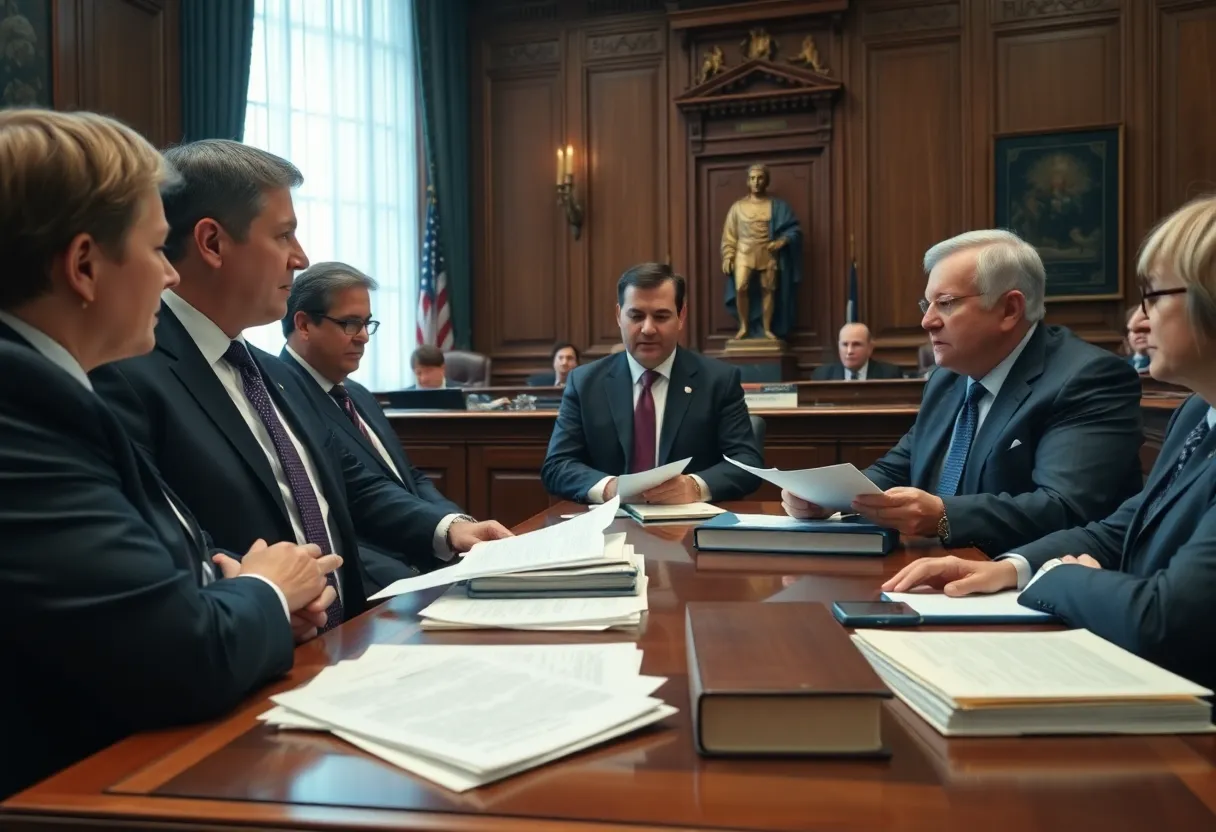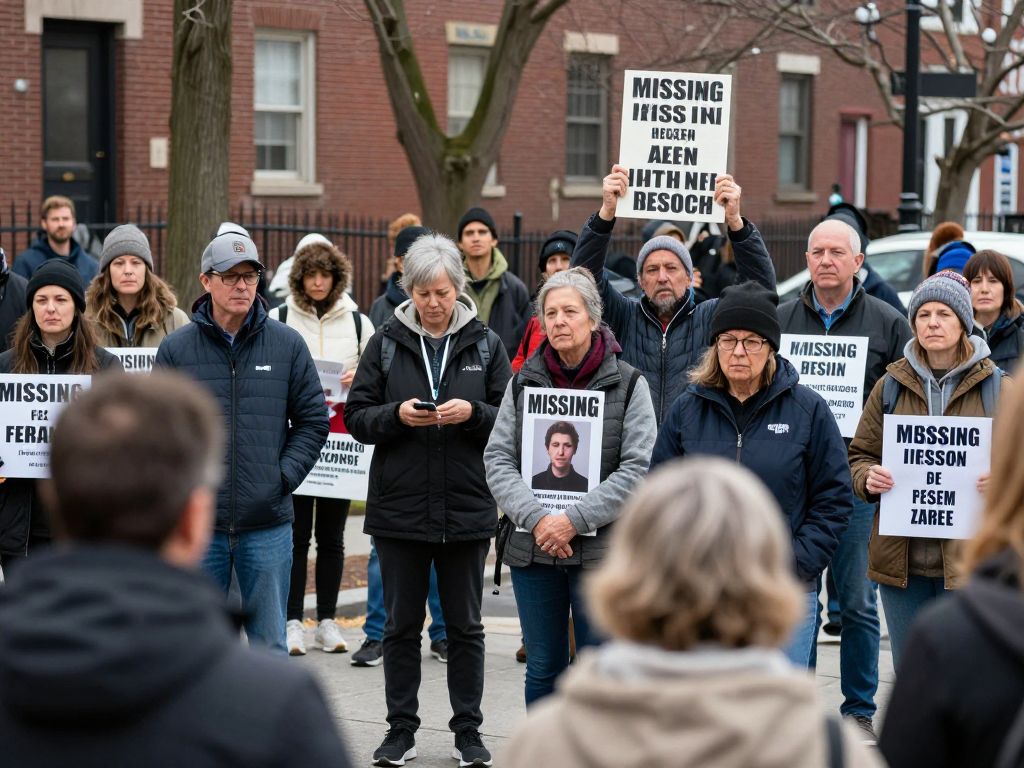News Summary
A coalition consisting of Democratic state attorneys general from 19 states has filed a federal lawsuit against President Trump’s executive order that seeks to alter U.S. election processes. The lawsuit, which claims such changes infringe upon state authority and could lead to significant financial burdens, emphasizes potential voter confusion and undermined trust in elections. The order also mandates proof of citizenship for voter registration, raising concerns about its impact on eligible voters. Bipartisan support from former secretaries of state highlights the controversy surrounding the order.
Boston — A coalition of Democratic state attorneys general from 19 states has initiated a federal lawsuit challenging President Donald Trump’s executive order that seeks to significantly modify U.S. election processes. The lawsuit, filed in U.S. District Court, argues that Trump’s order encroaches upon the states’ constitutional authority to determine their own election procedures and asserts that the executive branch does not possess such authority.
The case, presided over by Judge Denise J. Casper, centers on claims that the changes outlined in the executive order could impose substantial financial burdens on the states. For instance, California officials estimate the implementation costs could reach $1 billion, and the states argue that such changes cannot be adequately executed before the upcoming elections.
According to the lawsuit, the necessary preparations for implementing these changes would divert resources and attention from essential election readiness efforts, potentially eroding public trust in the electoral process. The attorneys general emphasized that as the nation approaches the elections, any significant alterations risk causing confusion among voters about where and how to cast their ballots.
The lawsuit has garnered support from a bipartisan group of former secretaries of state, who contend that Trump’s executive order violates the Constitution’s Elections Clause, which allocates election administration powers to the states and Congress. These former officials characterize the order as an attempt to centralize electoral policymaking within the executive branch, thereby undermining established democratic processes.
This legal action is one of three lawsuits lodged against the executive order, which aims to impose proof of U.S. citizenship as a requirement for voter registration in federal elections. The directive further stipulates that mail or absentee ballots must be received by Election Day to be counted and ties federal election grant funding to states’ compliance with strict ballot submission deadlines.
Proponents of the order, including the Trump administration, assert that it is designed to safeguard democratic integrity by ensuring “free, fair and honest elections unmarred by fraud, errors, or suspicion.” However, the states involved in the lawsuit counter that the executive order could adversely affect voter turnout and engagement.
In response to the lawsuit, attorneys for the Justice Department have argued against the request for a preliminary injunction, asserting that the President possesses the authority to guide the enforcement of federal voting laws. The ongoing discussions will likely hinge on the determination of the extent of the President’s authority to direct the operations of the independent U.S. Election Assistance Commission.
It is noteworthy that in a separate legal proceeding, a judge previously halted a provision of the executive order mandating proof of citizenship, citing its infringement on state and congressional powers. The legal community remains watchful of similar proof-of-citizenship requirements, as there are concerns that such measures could disenfranchise eligible voters lacking the necessary documentation.
In certain states where similar laws were implemented, thousands of eligible individuals have reportedly faced obstacles in registering to vote, raising alarm over the potential impact of Trump’s executive directive. As the court proceedings continue, the legal ramifications of the executive order are poised to shape the landscape of U.S. elections moving forward.
Deeper Dive: News & Info About This Topic
HERE Resources
Boston Sues Federal Government Over Key Homelessness Funding
Boston Meeting on Antisemitism Canceled Amid Tension
Judge Rules Against Newsmax in Dominion Case
Massachusetts Launches ‘Fed Up’ Website for Laid-Off Workers
Massachusetts Residents Rally Against Trump
SEC Drops Lawsuit Against Coinbase: A Big Win for Crypto
Additional Resources
- Boston.com
- Wikipedia: Elections in the United States
- NBC Boston
- Google Search: Trump executive order elections
- The New York Times
- Encyclopedia Britannica: Election
- Axios
- Google Scholar: Trump executive order voting
- Boston 25 News
- Google News: Trump executive order impact on elections

Author: STAFF HERE BOSTON WRITER
The BOSTON STAFF WRITER represents the experienced team at HEREBoston.com, your go-to source for actionable local news and information in Boston, Suffolk County, and beyond. Specializing in "news you can use," we cover essential topics like product reviews for personal and business needs, local business directories, politics, real estate trends, neighborhood insights, and state news affecting the area—with deep expertise drawn from years of dedicated reporting and strong community input, including local press releases and business updates. We deliver top reporting on high-value events such as Boston Marathon, Head of the Charles Regatta, and Boston Harborfest. Our coverage extends to key organizations like the Greater Boston Chamber of Commerce and Associated Industries of Massachusetts, plus leading businesses in finance, biotech, and insurance that power the local economy such as Fidelity Investments, Biogen, and Liberty Mutual Insurance. As part of the broader HERE network, we provide comprehensive, credible insights into Massachusetts's dynamic landscape.





